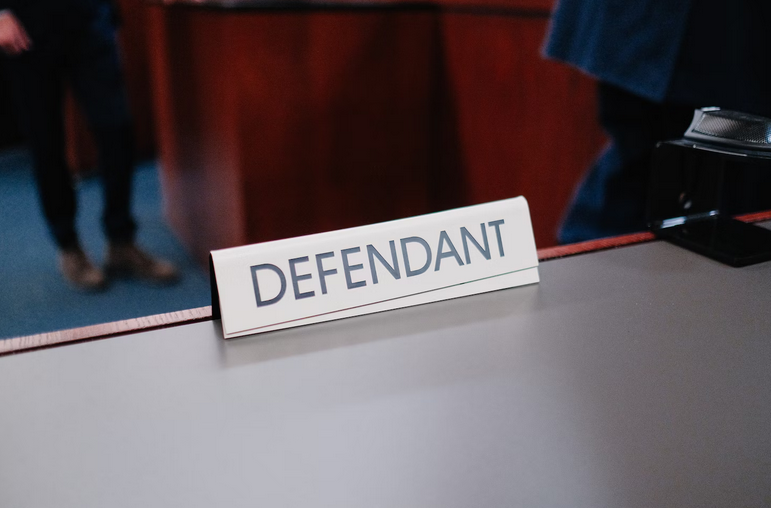Legal transcription is the process of converting audio or video recordings of legal proceedings, such as court hearings, depositions, or meetings, into written documents. These transcripts serve as a crucial record of everything that was said during the proceedings and are used by legal professionals for various purposes. With the increasing use of digital recording devices in legal settings, accurate legal transcription has become more important than ever before. Harnessing the power of digital transcripts, once again, can help you in a number of ways.
What Does a Legal Transcriptionist Do?

A legal transcriptionist is a trained professional who listens to audio or video recordings and accurately transcribes them into written form. They must have a thorough understanding of legal terminology and procedures to ensure accuracy in their work. In addition to typing out the spoken words, they also include non-verbal cues in the transcript, such as pauses, tone of voice, and gestures.
Importance of Accuracy in Legal Transcription
Accuracy is of utmost importance in any legal document, and this holds true for legal transcription as well. Legal professionals rely heavily on accurate transcription of various legal proceedings, such as court hearings, depositions, interviews, and client meetings. Any error or inaccuracy in these transcriptions can have serious consequences and may even jeopardize the outcome of a case.
One of the main reasons why accuracy is crucial in legal transcription is because these documents are considered official records and may be used as evidence in court. Inaccuracies or discrepancies between the spoken word and the written record can undermine the credibility of witnesses or lead to misinterpretation of important details. This can ultimately impact the decision-making process of judges and jurors.
Moreover, lawyers often refer back to transcripts when preparing for a trial or during cross-examinations. If there are errors or omissions in the transcription, it can cause confusion and hinder their ability to present a strong case. This not only wastes valuable time but also reflects poorly on the lawyer’s professionalism.
In addition to its impact on ongoing cases, inaccurate legal transcription can also have long-term consequences. Transcripts that contain mistakes may be used as reference materials for future cases involving similar issues. If these inaccuracies are not corrected, they could potentially set a wrong precedent for future legal proceedings.
How Accurate Transcriptions Benefit Legal Professionals

Accurate transcription is an essential tool for legal professionals in today’s fast-paced and demanding legal environment. In the legal field, time is of the essence, and having accurate transcriptions can greatly benefit lawyers, court reporters, and other legal professionals in their daily work.
Here are some ways that accurate transcriptions can benefit legal professionals:
Improves Efficiency
Legal professionals deal with a large amount of information on a daily basis, from client meetings to court hearings to depositions. Having an accurate transcription of these interactions and events allows them to quickly review and reference important details without wasting time listening to recordings or taking handwritten notes. This improves their efficiency and productivity, allowing them to focus on more critical tasks.
Saves Time
In the legal field, time is money. Accurate transcriptions allow lawyers to have a written record of all communication related to a case without having to spend hours dictating or typing out notes. This saves valuable time that can be better spent on analyzing evidence or strategizing for a case.
Enhances Accuracy
It goes without saying that accuracy is crucial in the legal profession. A single mistake in a transcription could have serious consequences for a case. With accurate transcriptions, lawyers can rely on precise records of conversations, interviews, and testimonies that can be used as evidence in court proceedings.
Facilitates Collaboration
Legal cases often involve multiple parties working together towards a common goal. With accurate transcriptions, all team members have access to the same data.
Technology and Tools for Accurate Legal Transcription

In today’s fast-paced legal industry, accurate transcription plays a crucial role in the success of any legal professional. However, with the increasing complexity and volume of legal documents, manual transcription can be time-consuming and prone to errors. This is where technology and specialized tools come into play to ensure accurate and efficient transcription.
Speech Recognition Software
One of the most commonly used technologies for legal transcription is speech recognition software. This software uses artificial intelligence algorithms to convert spoken words into text automatically. It works by analyzing an audio recording or live speech through a microphone, making it an ideal tool for transcribing court hearings, depositions, and interviews.
Speech recognition software has significantly improved over the years, with advanced features such as speaker identification, punctuation insertion, and customizable vocabulary to cater to different accents and terminology used in the legal field. These features make it easier for legal professionals to produce accurate transcripts quickly.
Digital Recording Devices
Digital recording devices are another essential tool for accurate legal transcription. They provide high-quality sound recordings that are vital for producing precise transcripts. These devices have advanced features such as noise reduction filters and automatic gain control that help eliminate background noise, improving the overall quality of the recording. Furthermore, digital recording devices also allow timestamping, which helps with accuracy when transcribing multiple speakers or conversations involving specific time-sensitive information.
Accurate legal transcription has become an essential tool for legal professionals in today’s fast-paced and highly competitive legal industry. It has greatly impacted the way law firms, court systems, and other legal organizations operate, providing numerous advantages that have revolutionized the practice of law.



